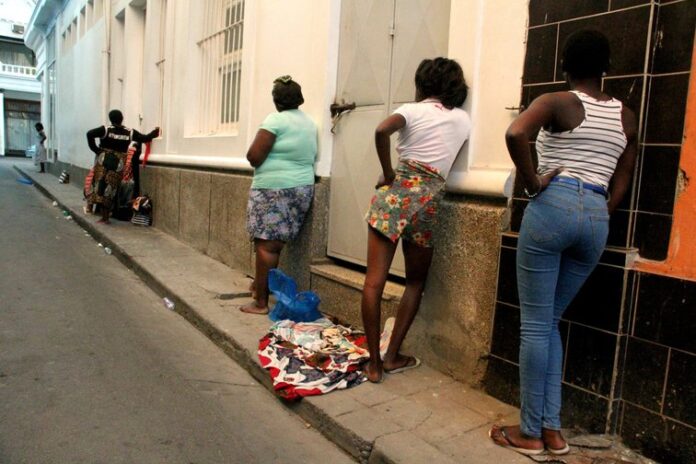From Streets to Screens: Social media and the rise of prostitution in Nigeria, by Gift Luckson
The rise of affordable smartphones, encrypted messaging apps, and mobile payment systems is reshaping Nigeria’s underground sex industry, pushing much of the trade from street corners and brothels onto digital platforms.
From X (formerly Twitter), TikTok, Facebook and Telegram groups, technology is giving sex workers and traffickers new tools to advertise, transact, and operate more discreetly, while also complicating law enforcement and raising fresh concerns about exploitation and public safety.
Nigeria’s Constitution
Although the Nigerian Constitution does not explicitly criminalise prostitution, the frequent arrest and harassment of sex workers across the country create the widespread perception that sex work is an offence in Nigeria.
In practice, the surrounding laws and enforcement actions make the trade unsafe and effectively unlawful. However, this applies only to southern Nigeria, as the Penal Code of the north forbids prostitution, especially in states that subscribe to Shariah Law.
Smartphones and Social Media
Smartphones, social media, and encrypted chats are reshaping how sex services are marketed, arranged, delivered, and monetised in Nigeria, whether consensual adult sex work and exploitative/illegal activity (e.g., trafficking, child sexual abuse material), which often blur online, and this leaves a big gap in the exposure of teenagers.
READ ALSO: Street Begging in Nigeria: A humanitarian crisis or security threat, by Gift Luckson
In the past two decades, the growth of social media has transformed how people interact, communicate, and even conduct business. While platforms like Facebook, Instagram, TikTok, and X were originally designed to connect people and foster creativity, they have also opened new avenues for illicit activities, one of the most concerning being the rise of prostitution in digital spaces.
The Shift from Streets to Screens
Traditionally, prostitution was confined to street corners, brothels, and discreet clubs. Today, much of this trade has migrated online.
Social media offers anonymity, wide reach, and convenience, enabling sex workers and pimps to connect with potential clients without the risks of physical solicitation.
Through coded language, hashtags, and private messaging, sexual services are marketed under the guise of modelling, escorting, or “adult entertainment.”
The Role of Influencer Culture
The glamorisation of lavish lifestyles on social platforms has indirectly fuelled the demand and supply of transactional sex.
READ ALSO: Internet as new gateway for human trafficking, by Gift Luckson
Many young people, influenced by images of wealth, luxury travel, and designer fashion, see prostitution or “sugar dating” as a fast way to achieve that lifestyle.
Social media normalises these arrangements through euphemisms like “hookup,” “sponsor,” or “blessing,” making them appear less stigmatised than traditional prostitution.
Technology as a Viable Marketing Tool
Payment systems such as cryptocurrency, peer-to-peer transfers, and digital wallets allow transactions to happen discreetly. Some sex workers use platforms like OnlyFans or Snapchat Premium to monetise sexual content legally, but this often blurs the line between online adult entertainment and in-person sex work.
Exploitation and Vulnerability
The darker side of this trend is the exploitation of vulnerable groups, particularly young women, men, and even minors.
Human traffickers and criminal networks recruit victims through false job offers or promises of fame, only to coerce them into prostitution.
READ ALSO: From COVID to MonkeyPox: Can Nigeria afford another epidemic?, by Gift Luckson
Social media amplifies these risks by making it easier to scout and lure individuals across borders.
Societal and Legal Implications
The rise of prostitution via social media raises ethical, moral, and legal challenges. Law enforcement struggles to monitor millions of daily interactions online but laws often lag behind technological innovation.
Society is left grappling with questions of morality, freedom of expression, and public health, especially with the risks of sexually transmitted infections (STIs) and psychological harm.
Way Forward
Stricter regulation of social media platforms to detect and remove accounts promoting sexual exploitation.
READ ALSO: Nigeria’s youth and the double-edged sword of content creation
Digital literacy campaigns to educate young people about the dangers of online recruitment and grooming.
Collaboration between governments, tech companies, and NGOs to crack down on trafficking networks.
Socio-economic empowerment, providing alternatives so that poverty and unemployment do not push people into prostitution.
Follow the Neptune Prime channel on WhatsApp:
Do you have breaking news, interview request, opinion, suggestion, or want your event covered? Email us at neptuneprime2233@gmail.com





